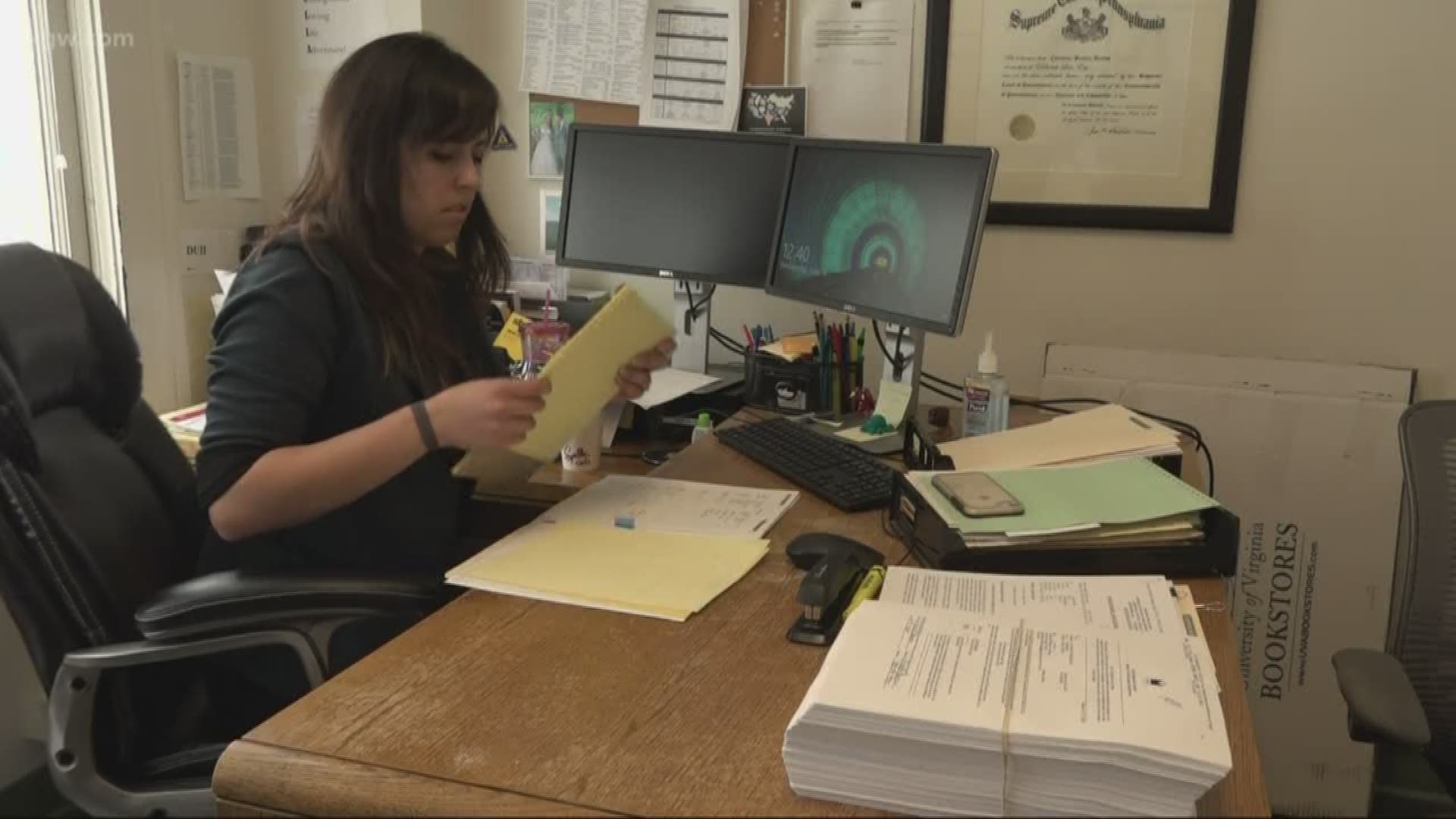PORTLAND, Ore. — Public defenders have long said they are overworked and underfunded.
Finally, this legislative session, Oregon’s Public Defense System got some much-needed funding.
“It never feels OK to stop working,” explained Christine Breton, a public defender with Multnomah Defenders, Inc.
Breton, a University of Virginia graduate, could have followed her classmates to a big law job. Instead, she felt a calling to serve the most vulnerable as a public defender at Multnomah Defenders, Inc.
“You have to take on this lifestyle and commit yourself to it and not a whole lot else,” Breton explained.
She knew she would be busy but now it is at a breaking point.
“These are my open cases heading to trial right now or needing some sort of resolution,” Breton said as she opened the drawer of her filing cabinet.
Her filing cabinet is so full of cases she is working on, it tips over if you open both drawers at the same time.
In her first year on the job, she said she handled more than 500 misdemeanor cases. The American Bar Association says attorneys should not handle more than 400 cases a year. However, some experts say even those numbers are far too high and outdated.
“I love this job and this is all I want to do forever, but I have, you know, over 200 clients right now and every day you like resolve one, you win a trial, and you come back and there are four or five new cases in your box when you walk back from court,” Breton said.
On a typical day, Breton has to be in court by 8:00 a.m., which means her day actually starts much earlier to make sure she is prepared. Then over lunch, instead of taking a break, she preps cases for the afternoon.
As a public defender, Breton represents defendants who cannot afford their own attorney. It is a right guaranteed to them in the constitution.
On the day KGW followed Breton, she was scheduled to be in three different places at once; something she says happens a lot.
Her day in court may end around 5:00 p.m., but she stays sometimes past 9:00 p.m. just to keep up with the workload.
“It is hard to look ahead, think, you know, this is always what I intended my career to be, I want to be a public defender forever, and I'm like but how, how,” Breton asked.
Breton is not the only one who feels this way. It is the same situation at Metropolitan Public Defender.
“The workload is too much,” explained Carl Macpherson, the executive director of Metropolitan Public Defender.
Macpherson said attorneys are burning out quicker than they used to because, simply put, they are exhausted.
“We've lost 25 attorneys in now 18, 19 months and we only have 70 in the office, so that's a third of our attorney staff,” Macpherson said.
With the loss of staff, Macpherson’s office had to stop accepting new misdemeanor cases from May 24 to July 1.
For misdemeanors, attorneys in his office have about 190 open cases. For felonies, attorneys average 60 to 80 open cases. He said those numbers are too high already, but numbers alone do not reflect the hours spent working on each case.
“We're really killing attorneys who are devoted to the work because they feel like they’re part of the problem, not part of the solution and they can't adequately represent their clients in this circumstance,” Macpherson said.
This is not a new problem. For years, legislators have been talking about fixing it. This session, they got a little closer with the passage of House Bill 5050. The bill allocates $20 million dollars to the public defense services commission to help with caseloads. It is money that is desperately needed because a study found Oregon's Public Defense System is not currently meeting constitutional standards.
It is too soon to say what changes will be made, but for people like Breton, they cannot come soon enough.
“There's kind of no light at the end of the tunnel,” Breton said. “It's just going to be this forever until there are bigger picture changes in how public defense is managed and funded, it's just going to be this level of intensity and this level of work.”

